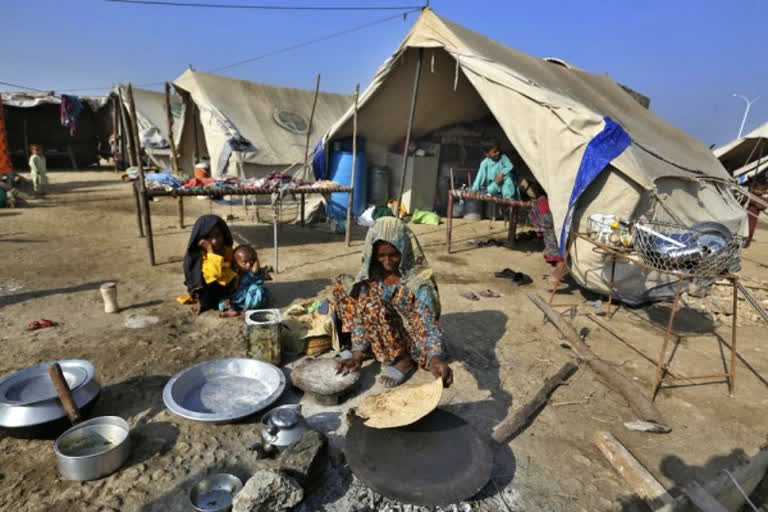Dhemaji (Assam):Rebuilding homes, besides helping children and livestock adjust to a new place, as floods turn them into refugees every year is a cross the women in Assam's Dhemaji district have to bear. Their menfolk who are mostly migrant labourers eking out a living in far-off cities or farms are sometimes blissfully unaware of the floods which have washed away their homes and often family members.
The mighty Brahmaputra and its 26 tributaries inundate vast tracts of land in 1200 odd villages of the district, and they remain under water for a large part of the year from April to October - as three to four waves of deluge force people to take shelter in safer places, with some of them never coming back.
'We have to leave our homes almost every year with our children and livestock during the flood season to safer places. When we return, we have to either repair or rebuilt our house sometimes in a new spot, Junali Hazong, an Anganwadi worker of Azarbari village, told PTI. Most of the houses in the rural Dhemaji district are built atop bamboo stilts, locally called Chang ghar'.
People stay inside the house while livestock is kept below. However, during floods, the animals have to be accommodated inside to protect them from being washed away. When living at home becomes perilous during floods, they move towards the embankment and return home after the water recedes.
Some people do not come back and shift to highlands in remote areas in the hope that the impact of flood will be less severe in those areas, Binita Doley, a homemaker of Medipauma village, said. Many residents of severely affected villages have moved homes many a time. "Floods are a way of life for us but we face immense difficulties to make both ends meet, she said.
Women face varied other problems both during flood season and afterwards in the district where 32 per cent of girls get married before 18 years. During floods, we face the problem of hygiene and sanitation, particularly for pregnant and menstruating women, proper nutrition and children's safety. After the water recedes, fields are not fit for cultivation and we cannot survive on the limited produce, and our men are forced to leave home to earn money,'' 30-year-old Sumita Pegu said.
